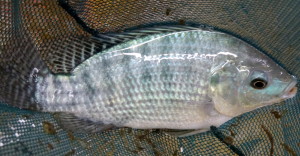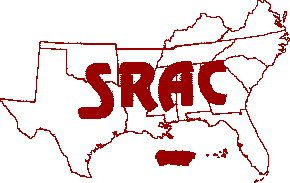

Need assistance with wildlife and fish management on your ranch, backyard, or pond? Simply call your local County Extension Agent.
Grass carp are effective biological controls, but will seldom control aquatic vegetation the first year they are stocked. While grass carp control a wide variety of aquatic vegetation, they do have defined preferences and will not control all aquatic vegetation species. Grass carp stockings are effective only when they are stocked in waters containing vegetation they prefer to eat. Grass carp stocking rates to control most aquatic vegetation are usually in the range of 7 to 15 per surface acre or higher. In Texas, only triploid grass carp are legal and a permit from the Texas Parks and Wildlife Department is required before they can be purchased from a certified dealer. A list of certified dealers is available within the instruction packet on the TPWD Triploid Grass Carp Information page at http://www.tpwd.state.tx.us/landwater/water/habitats/private_water/gcarp_intro.phtml.
Tilapia do consume some aquatic vegetation species such as duckweed and watermeal, but are not effective for control of most aquatic vegetation species. Tilapia are a warm water species that cannot survive at water temperatures below 55 F. Therefore, tilapia usually cannot be stocked before mid-April or May and will die in November or December. Recommended stocking rates are 15 to 20 pounds of mixed sex adult Mozambique tilapia (Oreochromis mossambicus) per surface area. Tilapia are often not effective for vegetation control if the pond has a robust bass population due to intense predation. In Texas, stocking of Mozambique tilapia does not require a permit from the Texas Parks and Wildlife Department. Blue or Nile tilapia require an exotic species permit, and are not to be used for recreational pond stocking. Other species of tilapia are not permitted in Texas. Check with a County Extension Agent in other states for legality of stocking tilapia.
| Texas AgriLife Extension Services | |
Southern Regional Aquaculture Center |
|
| University of Florida | |
| Oklahoma State University | |
| Auburn University | |
| University of Arkansas at Pine Bluff | |
| Langston University |

